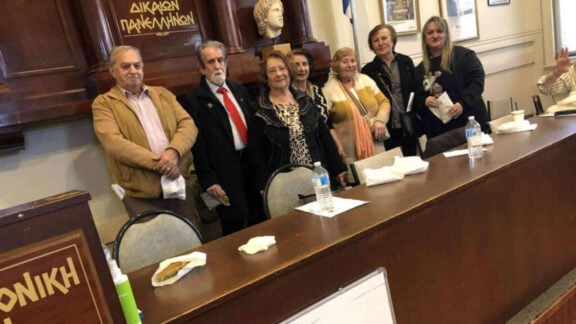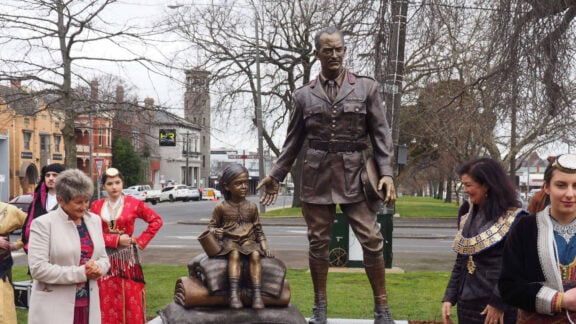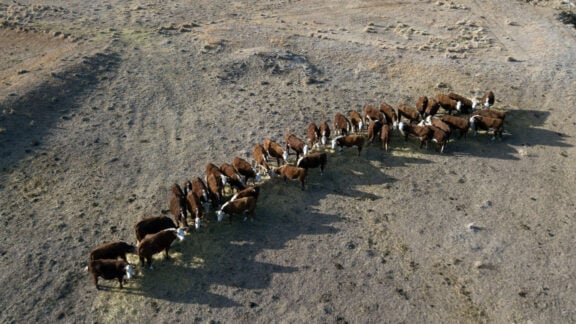Melomakarona and kourabiedes are a traditional Christmas stapl
The word melomakarona is a compound word meaning honey (meli) and blessed honouring of the dead (makaria).
They are a traditional egg-shaped dessert prepared during the Christmas holiday season, however the roots of melomakarona are steeped in Greece’s pagan history.
In antiquity, a piece of bread in the shape of modern melomakarona were offered after the funeral much like kolyva are offered by modern Greek Christians today.
There are testimonies that suggest that melomakarona (then known as makaria) were shared after the Epitaph speech by Pericles at Keramikos in 430 BC to commemorate the first dead of the Peloponnesian war.
In Keramikos – an area of Athens, Greece, located to the northwest of the Acropolis – the women would gather to mourn the dead of war and they would prepare makaria to share in the memory of their loved ones.
Kourabiedes appeared later. The myth tells us that during the Ottoman rule all kourabiedes had to be made into the crescent shape and therefore 250 years later that shape still predominates.
In Turkish etymology the word is from the root “kuru” (dry), and “biye” (biscuit). It is a rounded butter cookie with pieces of almond inside, the entire outside covered in powdered sugar.
The small bite-sized kourabiedes pieces are also good but the catch is that you don’t know how many you’ve had.
READ MORE: Many Greek traditions that celebrate Christmas draw from roots in the ancient past
MELOMAKARONA
Ingredients
1 cup olive oil or canola oil
1 cup sugar
3/4 cup ouzo
1/2 cup fresh orange juice
Juice of 1 lemon
2 tablespoons orange zest
1 cup of fine semolina
2 and 1/2 cups of plain flour
1 teaspoon of baking powder
1 teaspoon cinnamon
1 teaspoon clove powder
Method
1. Sift baking powder with flour
2. Beat sugar and oil, add all ingredients and mixing to make a dough
3. Shape by taking a small fist full of dough and making a short oval shape
4. Bake on baking paper for about 30 minutes
5. Do not make them too big, as they will not cook on the inside
6. Remove put them on a cooling rack
7. Make syrup
Syrup
2 cups of water
2 cups sugar
1 cups honey
1 stick cinnamon
5 whole cloves
1 star anise
1- 2 teaspoons rosewater
1. Put all the ingredients in a saucepan and bring to the boil for about 5 minutes on a slow heat
2. Take off heat and take out spices
3. With a slotted spoon dip each melomakarono in the syrup while still hot for a few seconds and line up on a platter in layers sprinkling each layer with coarsely chopped walnuts
* Do not refrigerate. When cooled, store in an airtight container. They will keep for a few weeks.
KOURABIEDES
Ingredients:
1/2 kilo plain flour
1/2 teaspoon baking powder
1 egg yolk
250 grams sugar
2 tablespoons ouzo
1/4 cup of strained fresh orange juice
500 grams unsalted butter, melted and slightly cooled
250 grams coarsely ground, blanched and toasted almonds
4 dozen cloves
Method:
1. In a mixer beat egg yolk with sugar, ouzo and orange juice for 2 minutes
2. Add melted butter and almonds and mix for 5 minutes
3. Sift flour with baking powder and add to mixture making soft dough
4. Kneed gently for about 15 minutes and refrigerate for 15 minutes
5. Make into shapes, do not press or flatten
6. Place a clove in the middle of each kourabie
7. Place on ungreased baking paper about 2 centimetre apart
8. Bake for 30 minutes
Topping:
240 grams icing sugar
Method:
1. On a flat platter place a layer of kourabiethes and sift the icing sugar on top, another layer and sift icing sugar.
2. Keep repeating this till all have been layered with icing sugar.
* You might like to leave out the cloves and instead sprinkle with rosewater when cooked and just before sifting the icing sugar on









